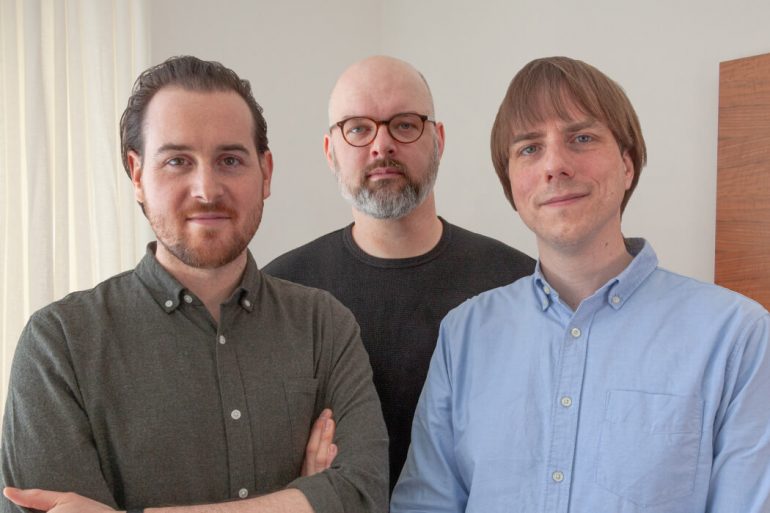Toronto startup Mayday has secured $3.8 million CAD ($3 million USD) in seed capital as it prepares for the public launch of its automated calendar product.
Mayday was co-founded by serial entrepreneur Jeremy Bell, who says his company is building a smarter scheduling and time management tool for remote teams and busy professionals.
The seed round came from a group of United States venture firms and was led by 8VC, which has invested in the likes of Asana, Oculus, and Wish. Shasta Ventures, ff Venture Capital, Colle Capital, N49P, Panache Ventures, Ramen Ventures, Rogue Capital, and Globalive also invested, alongside angel investors, including Luke Vigeant of Inkblot, John Laban of OpsLevel, and John Maier, a director of data science at Shopify.
“We really wanted to deeply understand how people manage their time; like what is the actual underlying problem.”
Bell founded Mayday in 2019 alongside CTO Brian Faber, who worked with Bell at Toronto software company Connected. The pair later brought on COO Adam Day as the third co-founder.
Bell and his team have been working on what has become the Mayday product over the last few years, taking their time to build what they see as a better and different kind of calendar product.
“We’ve been pretty methodical about going about this product or trying to solve this problem,” Bell told BetaKit. “If we were just going to … build another calendar, for sure we could [have] just put our heads down and done that quite quickly. But I didn’t think that was the right approach. We really wanted to deeply understand how people manage their time; like, what is the actual underlying problem?”
The calendar and scheduling software markets are heavily saturated, with Google Calendar and Microsoft Outlook Calendar used predominantly. The likes of Calendly have also risen to popularity recently for their ability to easily schedule meetings and connect with existing calendars.
Closer to home, Toronto-based CalendarHero (formerly Zoom.ai) went through a transition from a personal AI assistant for employees to an automated scheduling software that was bought by Vendasta last year.
Like CalendarHero, which started by automating menial tasks, an early prototype of Mayday was task-related. Bell explained that it took the last few years for his company to feel they had created a product that brought new value to the calendar and scheduling market.
The current version of Mayday, which is currently available only via closed beta, combines a calendar, scheduling tool, and personal assistant. Bell argues the shift being seen to remote and hybrid work has made this kind of tool more relevant than ever before.
“The idea of ‘work hours’ has become blurry, with personal and work tasks demanding our attention throughout the day,” he writes in a blog post. “Our daily lives have become a balancing act between what’s supposed to be important and what actually is, clashing with the reality that we can’t do it all. Too many meetings. Too many distractions. Not enough time to get things done.”
Like Calendly, Mayday allows people to schedule meetings in someone’s calendar, but it also offers an ideal times feature. The automated nature of Mayday also uses data to help workers plan an ideal week with ‘Smart Tags,’ and set aside time for priorities outside work – like exercise and family time.
RELATED: Former Tungle, Foko Retail employees team up to launch new hybrid work-focused calendar startup
“One of the reasons we continue to build this out in a closed beta is we know that if we’re going to succeed, we need to be able to create something that doesn’t just work as a companion to your existing calendar,” Bell said. “It really needs to be something that you use every day. It needs to be done in a way that’s performance and trustworthy with privacy in mind, and it needs to be a really polished experience.”
The idea for Mayday came to Bell after years of working for companies where existing calendar products were not adding value to his day-to-day work.
Bell got his first taste of remote work at Precision Nutrition, which bought out his first company, Wattage, in 2015. There, he found that scheduling meetings with co-workers in different time zones presented a challenge. While working on Facebook Portal as a contractor a few years later (Wattage was comprised of former Teehan + Lax employees, whose founders shut down the studio to join Facebook), Bell and some now-Mayday team members found themselves “drowning in meetings” at such a large company.
“[I] was left with this realization that the tools that we were all using to manage our time, weren’t actually helping us achieve the things that we wanted, if anything, they were holding us back in a lot of ways,” Bell said.
With a focus on remote workers, Mayday is built specifically with three types of employees in mind: makers/designers, managers, and connectors like salespeople.
Bell and his team are aiming to publicly launch the product later this year. Mayday would initially be available for free with plans to build out a premium offering on a tiered subscription basis.
“We have the ability to better determine all of that contextual awareness of what’s inside your schedule,” said Bell. “So that when we schedule something in your calendar, or when we’re trying to bring multiple people together to schedule for all of us, we can be much smarter about where we choose to schedule stuff, and that’s just fundamentally different than all the other products that are in the market.”


